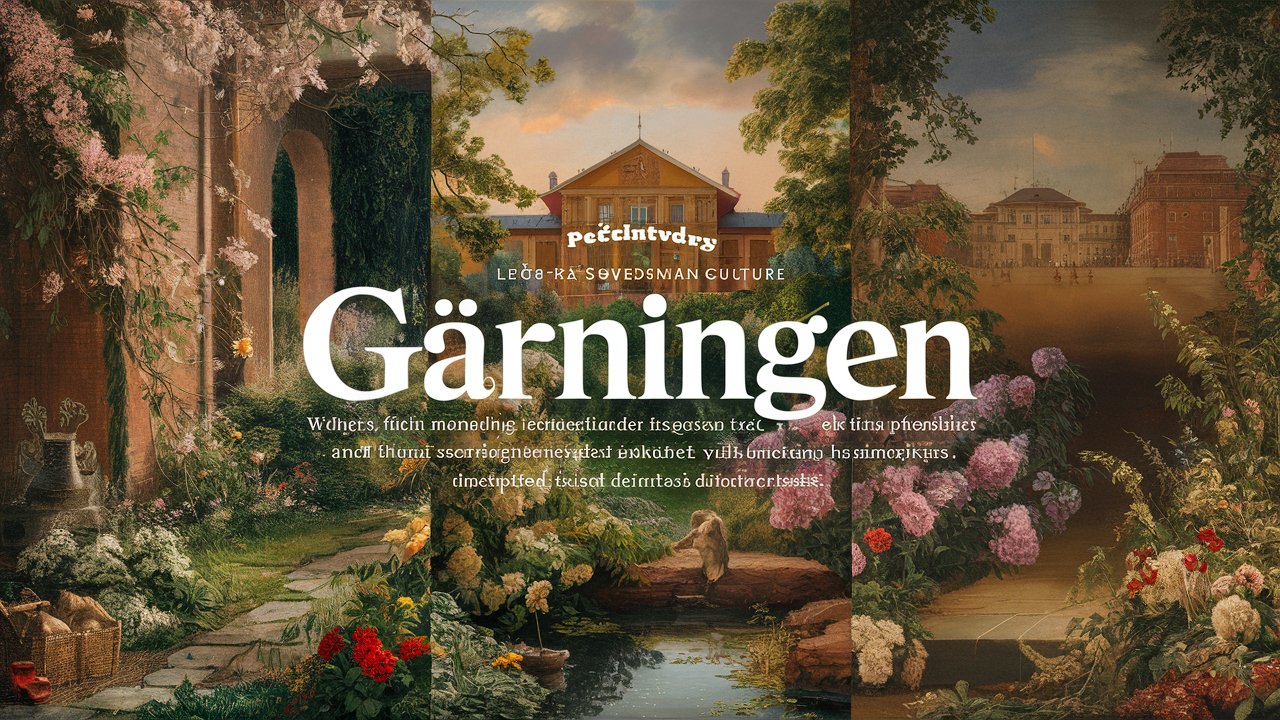Understanding “Gärningen”: The Meaning, Origin, and Cultural Significance

The word “Gärningen” carries profound weight in linguistic, cultural, and historical contexts. Derived from the Swedish language, it translates roughly to “the deed” or “the act”, but its meaning extends far beyond simple translation. It encapsulates actions, intentions, morality, and responsibility, making it a concept that intertwines with ethics, justice, and human behavior. In this article, we delve deep into the etymology, philosophical background, cultural relevance, and literary significance of “Gärningen,” exploring how it shapes language and thought across various domains.
The Etymology of “Gärningen”
The word “Gärningen” stems from the Swedish root “gärning”, meaning deed, action, or work. The suffix “-en” denotes a definite form, making it “the deed” in English. Historically, the term evolved from Old Norse “gærning”, which referred to something done, a result of labor, or an act performed.
Throughout centuries, Scandinavian literature has used “gärning” not just to describe an event or task but to signify moral and ethical weight. In religious texts, “goda gärningar” (good deeds) and “onda gärningar” (evil deeds) have been essential in defining human virtue and sin. Thus, the linguistic journey of this word mirrors the evolution of Scandinavian ethical thought.
The Moral and Ethical Dimensions of “Gärningen”
At its core, “Gärningen” represents moral accountability. It signifies that every act carries consequences—both intended and unintended.
In Christian doctrine, deeds determine spiritual worth: one’s gärningar reflect faith and integrity. In modern secular thought, the term symbolizes personal responsibility—the idea that our actions define who we are more than our intentions. This duality—between intention and outcome—makes “Gärningen” a powerful symbol of moral realism.
“Gärningen” in Literature and Cultural Expression
Swedish and broader Nordic literature often employ “Gärningen” as a thematic cornerstone. From August Strindberg’s psychological dramas to Selma Lagerlöf’s moral tales, the word embodies the struggle between good and evil, guilt and redemption.
In many literary works, the protagonist’s gärning—a crucial act—sets the course of the narrative. Whether heroic or tragic, this deed becomes a turning point that defines destiny. Writers use it to explore the human conscience, the burden of choice, and the complexity of moral ambiguity.
Modern authors continue this tradition, using “Gärningen” to confront social justice, ethics in leadership, and personal transformation. The word’s versatility allows it to transcend time, remaining a timeless symbol of moral consequence.
The Symbolism of “Gärningen” in Art and Religion
In religious iconography, “Gärningen” appears as a reflection of divine judgment. Artworks depicting the Last Judgment often illustrate the weighing of human deeds—symbolizing how every action, or gärning, contributes to one’s spiritual fate.
In Nordic folklore, good deeds were believed to protect against misfortune, while evil acts brought about curses or karmic retribution. The Viking Age sagas also reference honorable deeds as pathways to eternal fame, linking “Gärningen” to legacy and remembrance.
This concept continues in modern spirituality, where “Gärningen” aligns with the principle of karma—the universal balance of cause and effect. Thus, across faiths and philosophies, the word stands as a universal metaphor for ethical living.
The Psychological Perspective: The Act and the Actor
From a psychological standpoint, “Gärningen” bridges thought and behavior. It acknowledges that intentions without action hold little power. Psychologists interpret it as a representation of human agency—the ability to act upon one’s beliefs.
The analysis of “Gärningen” can be connected to cognitive dissonance, where individuals struggle to align their actions with their moral beliefs. In therapy and behavioral science, focusing on one’s gärningar can lead to self-awareness, healing, and ethical growth. By confronting our actions honestly, we gain insight into who we are and what we value most.

“Gärningen” in Modern Society: Law, Politics, and Justice
In legal systems, “Gärningen” plays a critical role in defining culpability. The term often appears in Swedish legal contexts referring to “brottets gärning”—the act constituting the crime. Here, the focus is on the objective act, not merely the intention behind it.
This legal framing emphasizes responsibility and evidence—a deed must be proven and connected to the accused beyond doubt. Thus, “Gärningen” represents the core of justice: it is not thoughts that the law judges, but actions.
In political discourse, “Gärningen” embodies leadership accountability. Great leaders are remembered not for promises, but for what they actually accomplish—their gärningar. In this way, it stands as a measure of integrity and effectiveness in governance and social progress.
The Linguistic Power of “Gärningen” in Everyday Speech
In Swedish communication, “Gärningen” remains a potent linguistic tool. Phrases like “efter gärningen kommer följden” (after the deed comes the consequence) remind speakers of the moral sequence of life. It encourages mindfulness about how one’s actions ripple through relationships, communities, and time.
In modern media and storytelling, “Gärningen” is used to describe pivotal events—moments that define a narrative. It continues to resonate in discussions about ethics, justice, and human motivation, proving that a single word can carry centuries of wisdom and reflection.
Conclusion: The Everlasting Relevance of “Gärningen”
“Gärningen” is more than a word—it is a mirror reflecting human morality, intention, and consequence. From ancient Norse mythology to modern legal frameworks, it reminds us that every action we take contributes to our story. Whether in art, religion, psychology, or politics, the power of “Gärningen” lies in its universality: we are all defined by our deeds.
As societies evolve, this timeless concept continues to guide our sense of right and wrong. It reminds us that ethics are not theoretical—they are enacted through our choices. The world may change, but the truth behind “Gärningen” remains constant: what we do echoes beyond ourselves.
Frequently Asked Questions (FAQ)
1. What does “Gärningen” mean in English?
“Gärningen” translates to “the deed” or “the act” in English, representing an action that carries moral or practical significance.
2. Is “Gärningen” used in legal contexts?
Yes, it is often used in Swedish law to describe the criminal act or action constituting an offense.
3. What is the moral meaning of “Gärningen”?
Morally, it signifies responsibility and consequence—the idea that our actions define our character.
4. How is “Gärningen” used in literature?
Writers use it to symbolize pivotal acts or moral choices that shape a character’s destiny.
5. Why is “Gärningen” still relevant today?
Because it captures a universal truth: actions matter more than words—a principle that transcends cultures and time.



